When is Conventional Wisdom Wise? Testing the Assumptions Behind Preventing Violent Extremism

Prevention of violent extremism is more important now than it was before the COVID-19 pandemic. In order to prevent radicalization and extremist sentiments, a clear understanding of the causes of support for terrorism and violent extremism is needed. While local and regional studies exist, there had not been a global quantitative analysis investigating the most prominent factors […]
Entry and Exit Points: Violent Extremism in South-East Asia

Violent extremism remains a significant challenge for South-East Asia, but in no country does it pose an existential threat. In Indonesia, Malaysia, Myanmar, the Philippines and Thailand, governments have the capacity to prevent it, while at the same time they should understand that it is unlikely to disappear completely. Whether violent extremism spreads, or is […]
Measuring the Economic Impact of Violent Extremism Leading to Terrorism in Africa
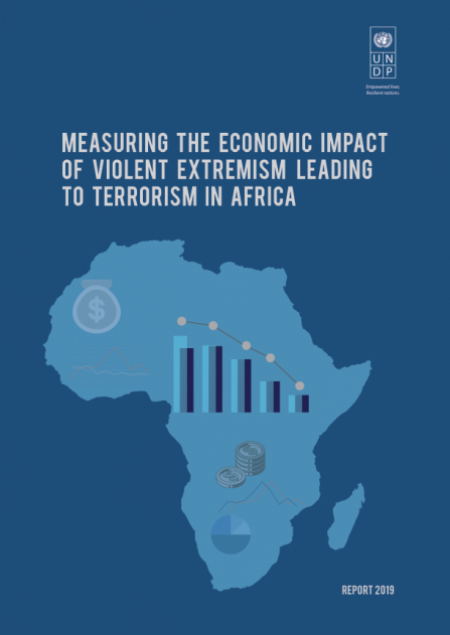
This study provides primary research on the economic cost and impact of violent extremism by looking at the economic cost of violent extremism focusing on 18 African countries. It examines the impacts of attacks on infrastructure and physical damage, formal and informal economies as well as the impact of ‘security spending’ on development processes. The […]
Conflicting Identities: The Nexus between Masculinities, Femininities and Violent Extremism in Asia

Violent extremism has emerged as one of the leading challenges to the realization of sustainable peace globally. Across South and South-East Asia, violent extremism poses a direct threat to inclusive development by fuelling intolerance, forcibly displacing communities, exacerbating cycles of insecurity and armed conflict, exploiting existing inequalities, and obstructing the enjoyment of human rights and […]
Measuring Mirco- and Macro-Economic Cost of Violent Extremism
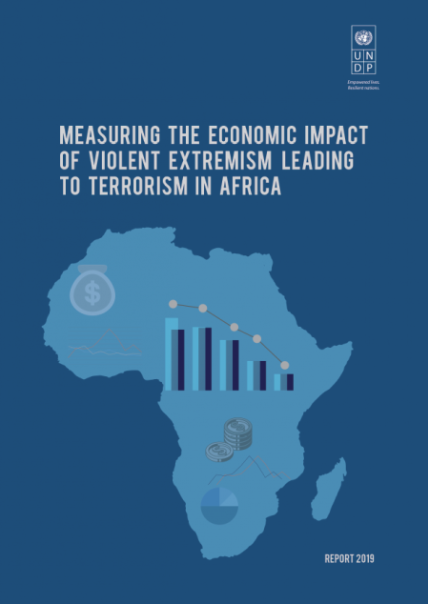
This study provides primary research on the economic cost and impact of violent extremism by looking at the economic cost of violent extremism focusing on 18 African countries. It examines the impacts of attacks on infrastructure and physical damage, formal and informal economies as well as the impact of ‘security spending’ on development processes. The […]
Amman forum report
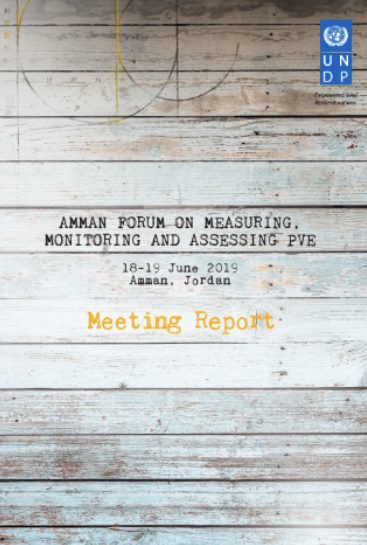
The Amman Forum, held on 18-19 June 2019, offered an opportunity take a deep-dive into issues of measurement, and to share experiences and learning and address some of the common challenges for researchers and implementers of PVE programmes. The growing body of evidence on violent extremism have started to influence individual programmes, yet knowledge is […]
Frontlines
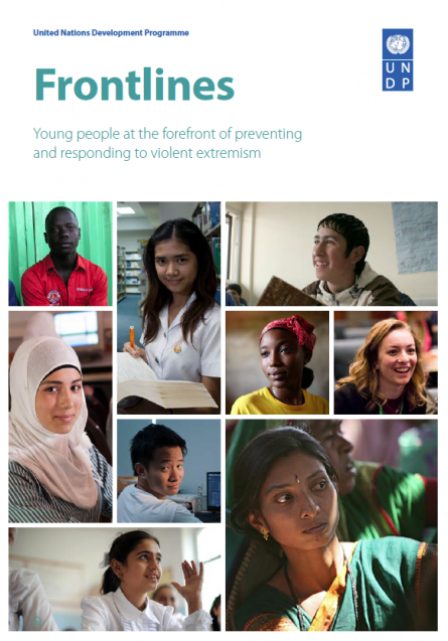
The Frontlines global report was developed by the United Nations Development Programme (UNDP), under the umbrella of the UNDP Youth Global Programme for Sustainable Development and Peace (Youth-GPS 2016–2020), and in collaboration with the Oslo Governance Centre (OGC). This new global research initiative was made possible with generous support by the Government of Norway. The report puts forward and synthesizes data from […]
Assessment of the Processes of Violent Extremist Mobilisation and Radicalisation in Mopti, Central Mali
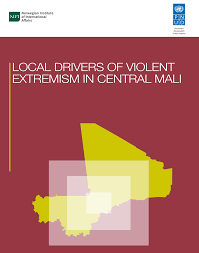
This policy brief examines the processes of violent extremist mobilisation and radicalisation in Mopti, Central Mali. Specifically, it looks at the strategies employed by one of the most salient radical jihadist groups in the region, the Katiba Macina. It seeks to answer the following questions: Given that violent extremist mobilisation has not taken root uniformly […]
Invisible Women

The global study, Invisible Women: Gendered Dimensions of Return, Reintegration and Rehabilitation, conducted in partnership with the International Civil Society Action Network, responds to a pressing need for action-oriented research that improves our understanding of women’s roles in reintegration and rehabilitation processes, and the work of women-led organizations in supporting these processes. The study considers their experiences […]
Social Media in Africa
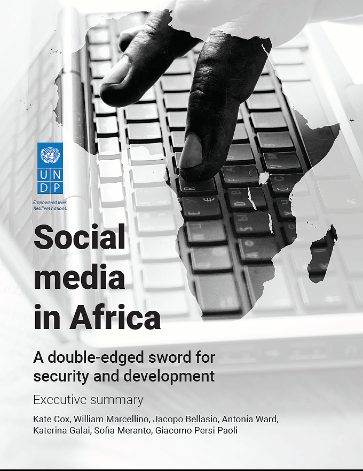
There is an on-going debate over the role of online activities in the radicalisation process. However, much of this debate has focused on Western countries, particularly in relation to ISIL’s online influence of homegrown terrorism and of foreign fighter travel to Iraq and Syria. Less is known about patterns of online radicalisation in Africa and […]


